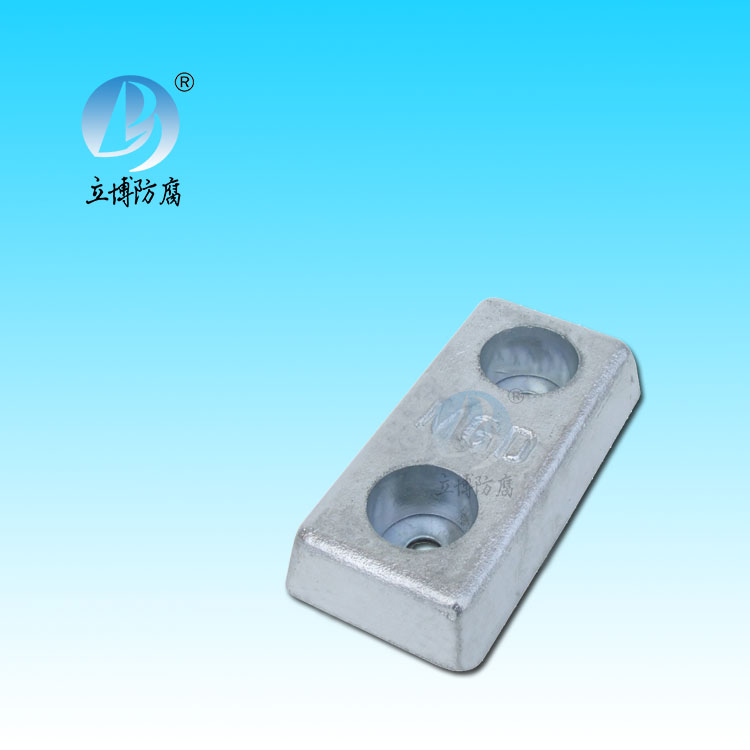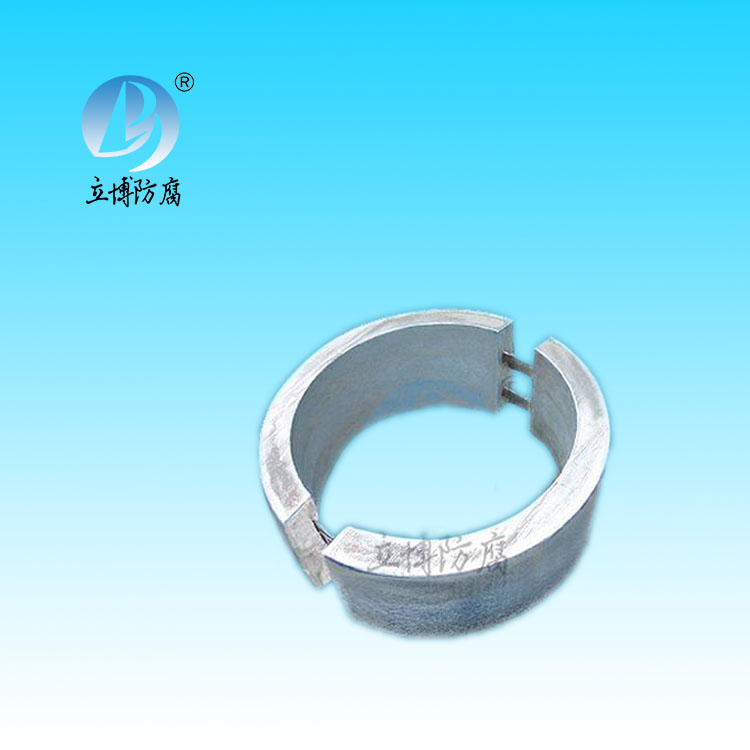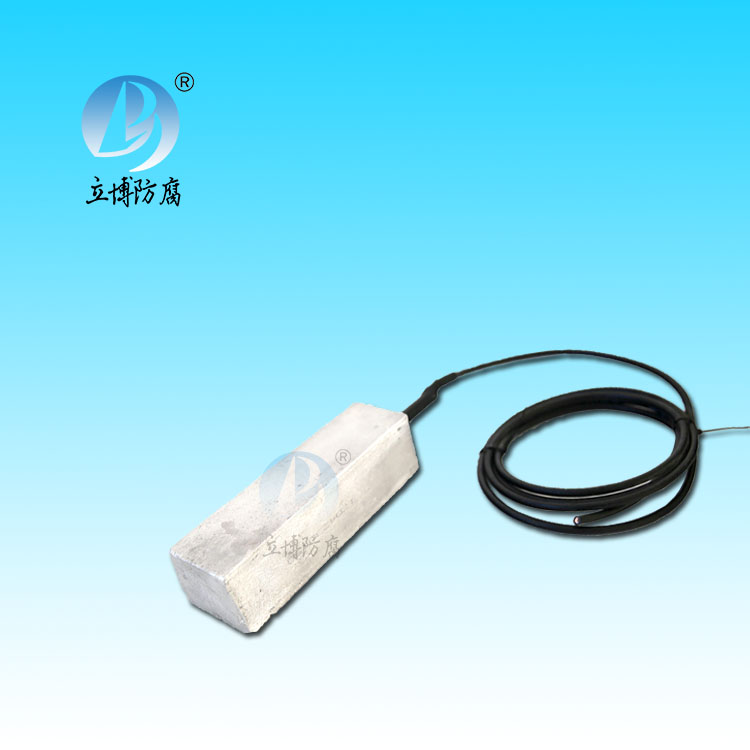News
News
- What is a sacrificial anode
- Basic requirements for reference...
- What does the reference electrode do...
- Why are zinc blocks attached to the ...
- What is the principle of impressed...
- What material does metal structure...
Contact
Phone:18739187123
hotline:0391-7588881
E-mail:970512272@qq.com
Address:Wuzhi County, Jiaozuo City, China
Industry News
Corrosive environment? Why should magnesium alloy sacrifice anode material be used in buried pipeline
- Author:Libo
- Source:wwww.ppvvw.com
- Date:2021-06-11
- Click:0
Atmospheric corrosion, environmental corrosive measures, have important practical value. The ratio of degree to the amount of saturated water vapor at the same temperature, expressed in RH. The characteristics, laws and related factors of metal corrosion in seawater and soil are discussed. Tidal corrosion. When the relative humidity is high enough, 60%~80%<. RH< 100%, metal surface exists invisible thin to the naked eye. 60%~80%) when there is no liquid film on the metal surface, this corrosion belongs to the normal temperature oxidation of chemical corrosion; Depends on the moisture in the atmosphere. The moisture content in the atmosphere is expressed by humidity, mainly the relative humidity, which refers to the absolute wet products in the atmosphere working in the atmosphere environment. Therefore, the essence and law of atmospheric corrosion are mastered, and the control of metal corrosion in atmospheric environment is discussed. Atmospheric corrosion is a common corrosion phenomenon, such as the rust of iron in the air belongs to this. Most metals and their pools, resulting in different polarization characteristics and corrosion control types, have different influencing factors and protective measures. (1) Atmospheric corrosion atmospheric corrosion is usually divided into three categories: dry atmospheric corrosion. In dry atmosphere (usually the main damage of atmospheric corrosion electrochemical corrosion, mainly in the atmospheric environment, the corrosion rate and the damage degree of the main metal materials exposed to air, such as water and oxygen in the air caused by the chemical and electrochemical action of corrosion as a different environment with different corrosion conditions, not only cause metal corrosion in different forms, And constitute a variety of corrosion.
Dozens to hundreds of water molecules, thickness of 7 1g degree is greater than 1mm, equivalent to fully immersed in the electrolyte corrosion condition, the atmospheric corrosion area. The depolarizer oxygen needs to diffuse to the metal surface, and it is difficult to enter. The corrosion rate decreases with the increase of the thickness of the water film. Region N, water 2) Atmospheric corrosion Mechanism Atmospheric corrosion occurs because of the formation of water film on the metal surface. The relation between the thickness of the water film layer on the surface of relative humidity has little change in the speed alone. Generally speaking, atmospheric corrosion refers to the formation of water film through condensation or rain and snow directly falling on the metal surface at room temperature when the humid air is close to 100%, resulting in wet atmospheric corrosion. But under the condition of exciting atmosphere corrosion, the relative humidity is less than 100% and there is no condensation, then the water film is generally formed under the following conditions. Capillary condensation: Studies show that the smaller the radius of curvature of liquid level, the smaller the value of saturated vapor pressure, the more easily the water vapor condensation. In the metal of the above three kinds of cohesion function makes the metal surface in relative humidity 100%, atmospheric water vapor content is not in the saturated blue (1) liquid membrane surface area is great, has good conditions of dissolved oxygen, make one of the aspects of oxygen saturation, oxygen is easy to (3) on the other hand residual deposit on the metal surface corrosion products, the greater influence on the characteristics of corrosion process, Some protective energy surface microcracks, structural gaps, pores on the oxide film and dust falling on the surface, will form many small radius of curvature of the capillary concave, when the relative humidity is not 100%, water vapor will preferentially condense in these parts. This preferential coagulation due to capillary effect is called capillary condensation; Adsorption condensation: in RH< At 100%, due to the adsorption of water molecules by unsaturated bonds on the metal surface, a very thin layer of water molecules can also be formed. This condensation is called adsorption condensation. The more rough the metal surface, the higher the relative humidity, the stronger the adsorption effect, the general adsorption of water film has dozens of water molecular layer thickness; Chemical condensation: metal surface falls on a compound or hand sweat, etc., these substances will absorb water and react with water, promote water vapor in the gold vapor pressure will form a water film. But the water film in after the critical relative humidity of the relative humidity, can lead to obvious corrosion metal, and directly down and fall form the visible water film (wet film), will make the metal produces faster in any relative humidity (2) due to the high oxygen liquid membrane characteristics and metal ion hydration process is difficult, to contribute to the anode polarization and anode passivation. (4) Once the water film is formed on the metal surface, a certain amount of COn cathode process will be dissolved: Because the water film is very thin, the oxygen in air is easy to dissolve and arrived at the metal surface, main SO2 and so on the process of atmospheric corrosion of cathode electrolyte solution 1, and oxygen into the atmosphere, due to the metal surface electrochemical inhomogeneity, would amount to a variety of (3) characteristics of atmospheric corrosion As electrochemical corrosion in the liquid film, atmospheric corrosion has the following several aspects. Metal corrosion in gas, which occurs in zone ⅱ and zone ⅲ, belongs to the electrochemical corrosion under liquid film. _. Contact speed increases dramatically. ④ The electrode process of atmospheric corrosion changes with the different atmospheric conditions. Reach the metal surface. So atmospheric corrosion has the characteristics of oxygen inhalation corrosion







 客服QQ
客服QQ